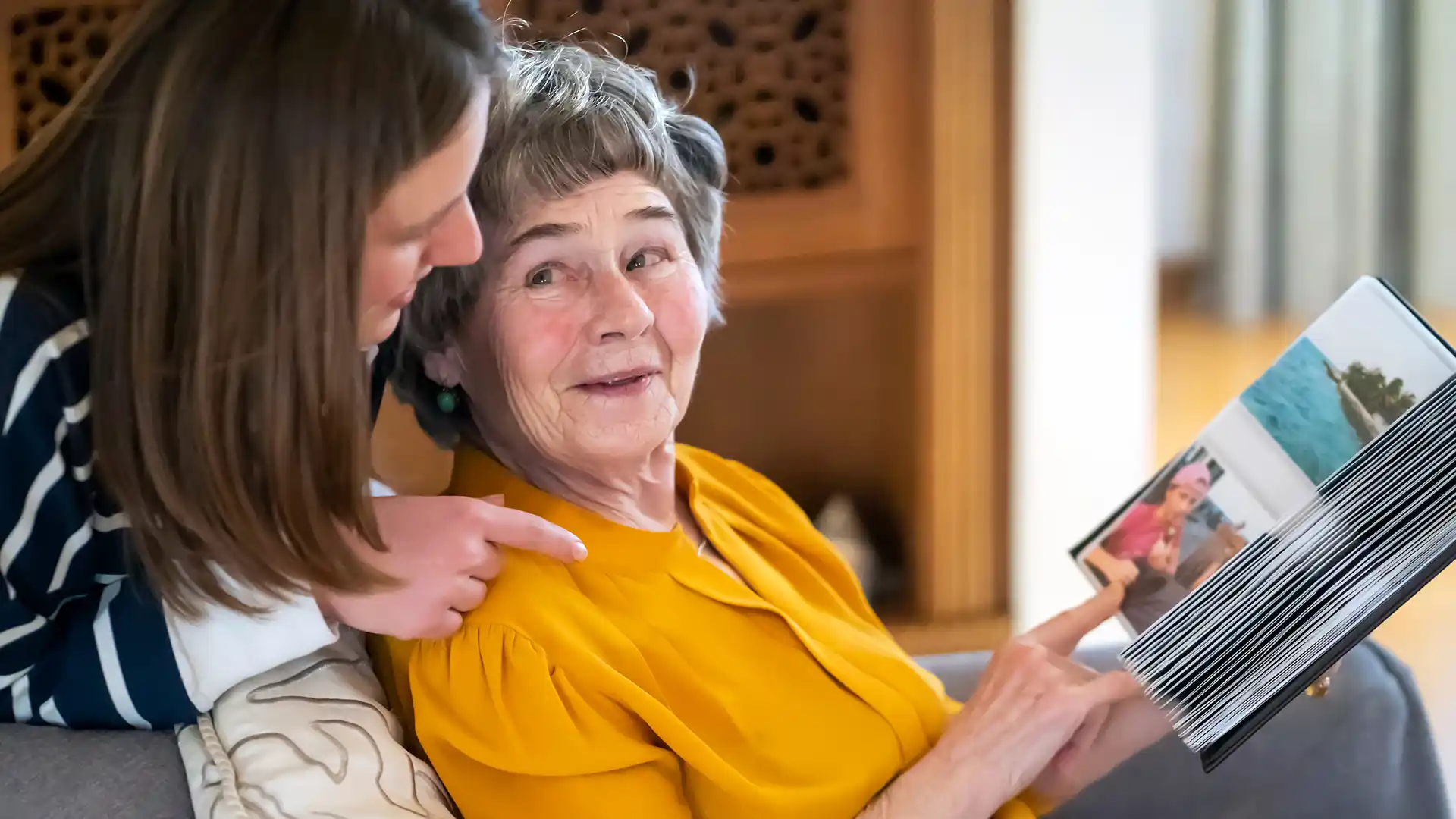Families often consider memory support communities when their loved one’s care needs begin exceeding what can be provided at home. There are many advantages to memory care, including around-the-clock access to a staff that is specially trained in dementia practices.
But how do you know which community would be best for your loved one? Online research and asking for referrals is a good start. You’ll also want to schedule an in-person tour. The following information can guide families in learning as much as possible about a memory care community.
Choosing the Right Memory Care Community: 7 Questions to Ask
You will likely have additional questions during your visit, but the answers to these seven will provide a clear view of the care and services offered.
- What training does the care team receive and what is the staff-to-resident ratio?
Individuals living with dementia require a different skill set in a caregiver. Ask the community if the staff receive special training for providing care. Inquire about the staff-to-resident ratio to gain a better idea of the response time to residents. - What type of residence is available?
Communities may offer private apartments or suites, as well as private or semi-private rooms. Think about what would work best for your loved one and ask to visit a few available options. You’ll also want to consider how best you can personalize the space to make it home and help smooth the move’s transition. - What activities, social opportunities and therapy programs are available?
Discuss how your loved one will be spending the day. Ask about any planned activities offered and how they might be tailored to the specific abilities and preferences of the residents. Are there special programs available such as art, music, pet or sensory stimulating therapies? - How is the care plan created and how often is it revisited?
Ask how your loved one’s physical and cognitive health will be assessed and who will be involved. Is the family welcome to contribute to the assessment? Discuss the individual care plan and what it might include. How often is it reviewed – and revised – if necessary? - How does the community reassure residents or help lessen anxiety or fear?
Discuss how the staff responds to a resident’s behavior or feelings of anxiety or fear. Share any techniques that might be helpful for your loved one. You’ll also want to understand if there are behaviors or a level of care that the community can’t accommodate. - How does the community support the family in making the transition to memory care?
A good community recognizes the challenges families may also face when their loved one moves into memory care. Have an honest discussion during the visit about the support or other resources that might be available for the family. - What safety and security measures are provided for the residents?
Living with dementia can result in an increased risk for safety and security. Many individuals will wander and might become lost if they don’t know where they are or how to return. Ask about security features in the community, including how the exit doors are monitored so no one can leave without notice.
How to Choose the Right Memory Care Community: Look for These Features
When visiting a memory support community, it can also be helpful to look for certain features. At the end of a tour, many families note their overall impression provided an intuitive sense whether this might be the right community for their loved one.
A welcoming entrance
Does the community appear welcoming upon arrival? Look for a warm and inviting lobby or entrance space, as well as a friendly greeting. These first impressions will likely influence your decision about the community.
A staff that feels valued and appreciates their work
While touring or spending time in different areas of the community, take note of the staff’s interactions with each other and the residents. Do they appear to value their work and genuinely enjoy interacting with the residents?
Residents that appear well cared for and content
You may have the opportunity to meet a few of the other residents and observe if they appear comfortable and feel at home. Are they relaxed around the staff and seem engaged when participating in activities or interacting with others?
Dining areas that promote a positive experience
Stop by the dining room to see if the space feels inviting. If possible, arrange ahead of time to share a meal there with your loved one. This will not only give you a first-hand taste of the food but allow your loved one to become a little more familiar with the community.
Well-designed common areas and spaces
Memory care communities design their spaces to minimize anxiety or confusion. You might notice the use of color-coded hallways or other features that help with orientation. Look for garden or patio spaces that are secured so residents have the freedom to go outside when they desire but cannot wander.
Memory Support at Presbyterian Village North
At Presbyterian Village North, we support both the individual and the family as they navigate the dementia journey.
We focus on the quality of life for our residents with a staff specially trained in the best practices of dementia care. Residents make their homes in private apartments while benefiting from the daily interactions with others and participating in our exercise, music, art and cognitive therapies.
With outdoor seating and dining possibilities, our secure garden courtyard and protected walking paths encourage our residents to venture outside while remaining safe from wandering.
We also provide the following services:
- Licensed nursing staff onsite 24/7
- Medication administration
- Assistance with activities of daily living
- Chef-prepared cuisine
- Special activities and social programs
- Access to a full continuum of care
Presbyterian Village North is a compassionate resource for your loved one and your family. Please call (214) 355-9000 if you have any questions or would like to schedule a personal visit to our community.


